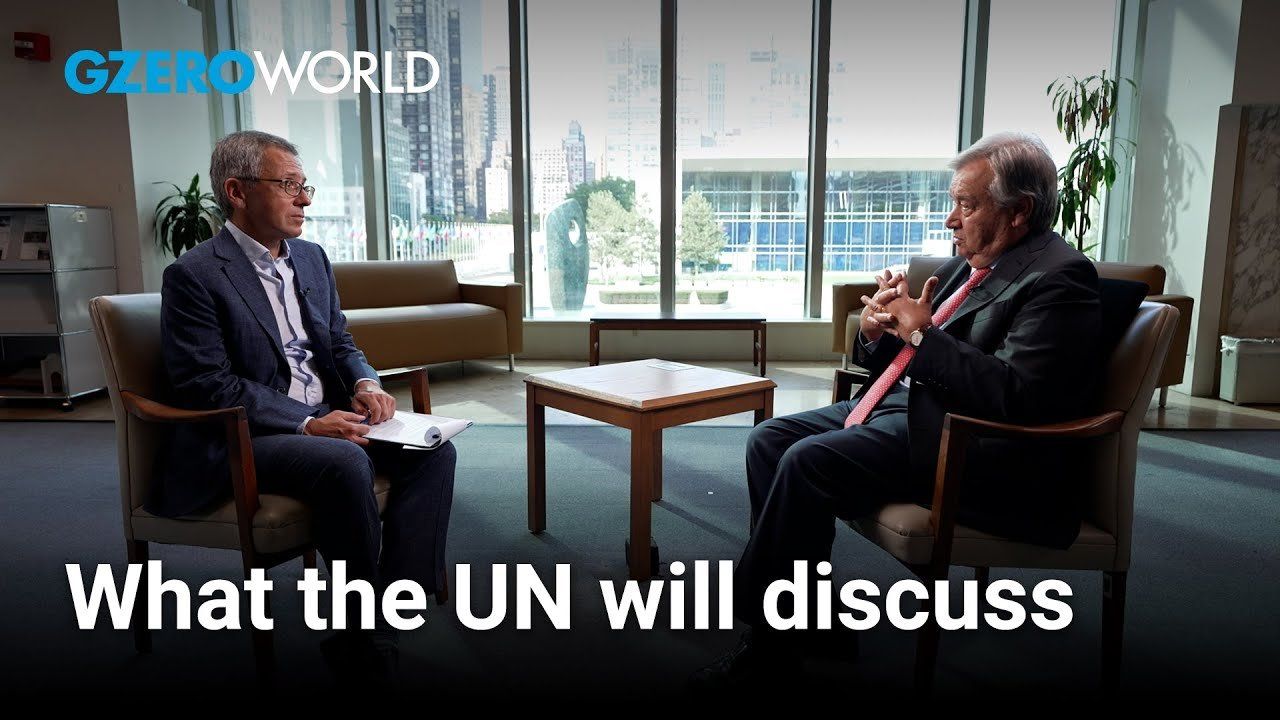2023 UN General Assembly's top objective, according to António Guterres

Every year, world leaders and top diplomats descend on New York City for the annual UN General Assembly, or "UNGA," as it's known. And this year's UNGA promises to be a blockbuster week, given the array of urgent global challenges facing the United Nations. From an unending war in Ukraine, lurching into its third year, to a climate-battered planet that UN Secretary-General has described as "Global Boiling," to growing hunger and poverty worldwide, there's plenty to discuss.
But what's the one thing to watch out for? That's what Ian Bremmer asks UN Secretary-General António Guterres in an exclusive and wide-ranging interview for GZERO World, days ahead of UNGA week. "There will be of course a lot of discussions on Ukraine," Guterres tells Bremmer, "But our most important objective in this week is in relation to the Sustainable Development Goals Summit. And the possibility not only to improve a declaration that is far-reaching, but to have a number of strong commitments by member states and by other entities in relation to the sustainable rules in general and climate in particular."
It remains to be seen if the Ukraine war will suck all the oxygen out of the room, or if member nations can agree on which urgent global challenges to tackle first.
Watch the full GZERO World interview: UN Chief on mounting global crises: "Hope never dies"
Watch GZERO World with Ian Bremmer every week at gzeromedia.com/gzeroworld and on US public television. Check local listings.
- Ian Explains: The UN General Assembly meets amidst converging crises ›
- What to watch at the UN General Assembly ›
- The Graphic Truth: The kids are not all right ›
- UN Chief on mounting global crises: "Hope never dies" ›
- UN Chief: Urgent global problems can't be fixed until Ukraine war ends ›
- Climate crisis can't be hijacked by global competitions: Justin Vaisse - GZERO Media ›
- Why the UN's 17 Sustainable Development Goals are not on track to be financed soon - GZERO Media ›